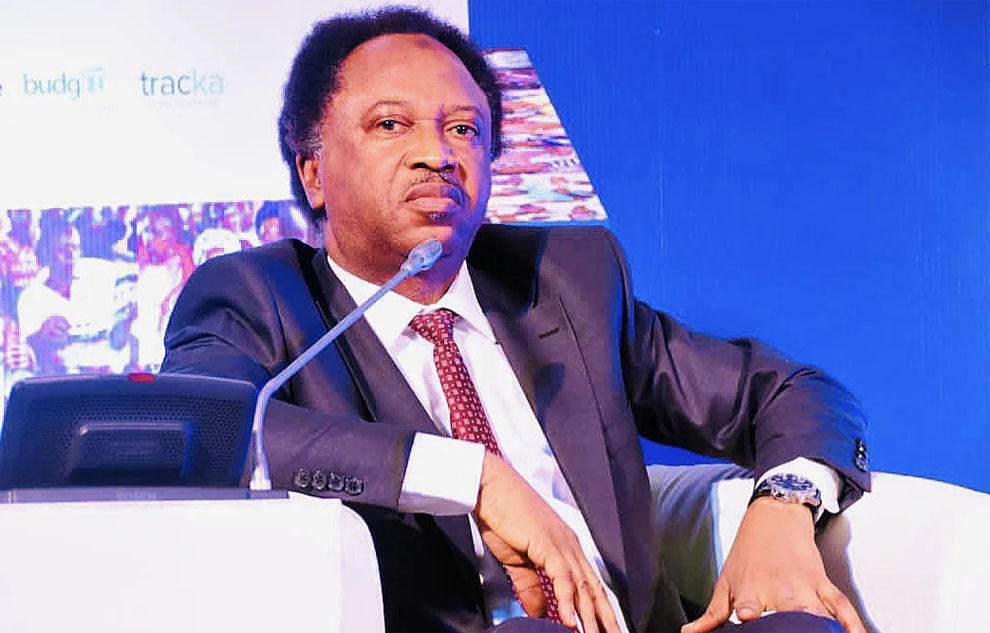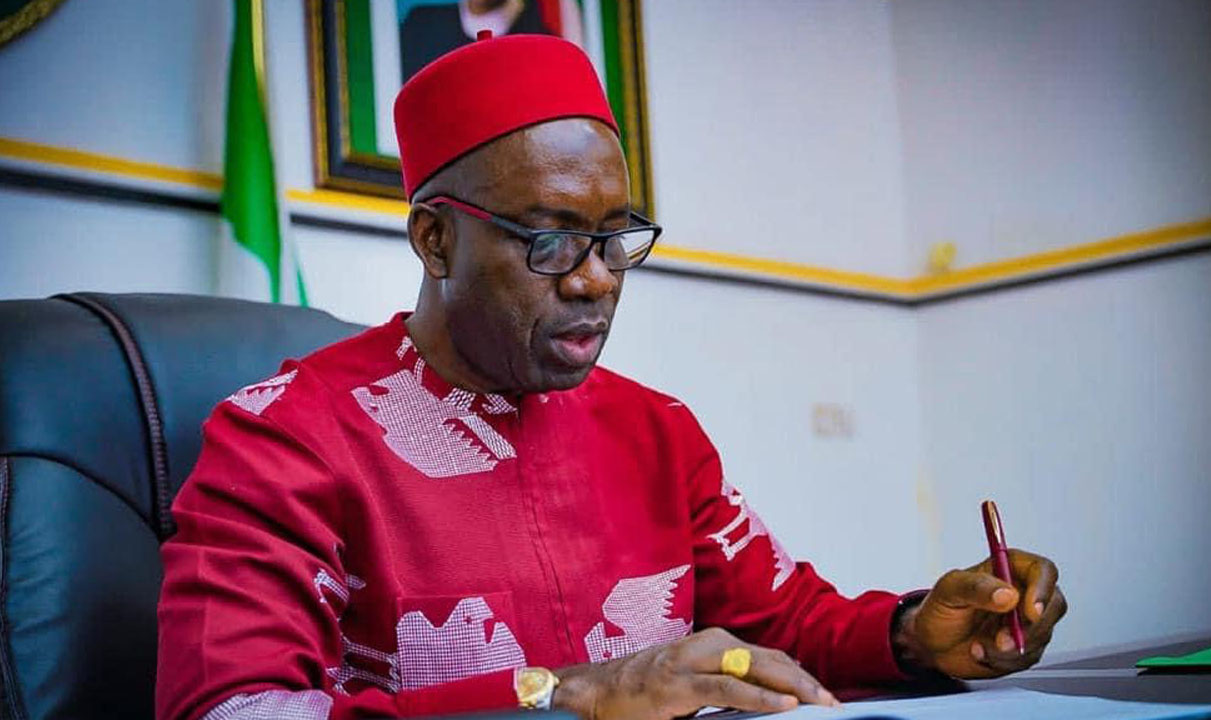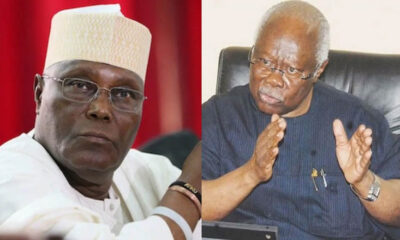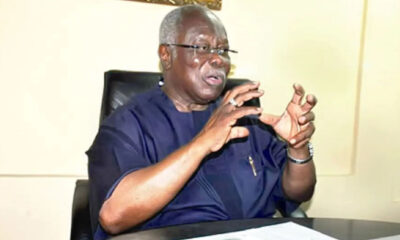News
Shehu Sani warns Tinubu not to repeat Buhari’s mistakes

Shehu Sani warns Tinubu not to repeat Buhari’s mistakes
Shehu Sani, a former senator from the Kaduna Central District who served in the 8th National Assembly, has pleaded with President Bola Tinubu to avoid making the same mistakes as his predecessor, Muhammadu Buhari, particularly when it comes to rearranging his cabinet.
After Buhari was sworn in on May 29, 2023, Tinubu assumed official leadership. However, activist Sani asserted that nepotism and ineptitude plagued the previous military Head of State’s eight-year reign, particularly with regard to governance, security, and economic policy.
The federal politician made the appeal while appearing as a guest on Channels Television’s Politics Today programme on Sunday.
He said, “I will advise President Tinubu to be careful not to make the mistakes of President Buhari, and I believe he is experienced enough to understand this. Under President Buhari, you have ministers who were appointed into office for the whole of eight years.
READ ALSO:
- Kuwait flight hostages sue British Airways, UK govt
- BREAKING: Pilot survives as NAF helicopter crashes in Kaduna
- UK cab driver confesses still getting paid in Nigeria as civil servant
“They were with him for the first tenure and the second tenure, and there was no cabinet reshuffle, no removal. Even if there was a removal, it takes three to four months to replace a minister. That was the way the country was governed. Under Buhari, we have seen nepotism at its peak, where people were appointed into office and left there even if they did nothing.”
Sani noted that “service chiefs were retained in office despite their failures, and by retaining them, you destroyed the careers of those behind them. For many years, many officers were retired to appoint one person. If this country has to move forward, we must treat the issue of competency as the qualification for appointment.”
The president’s cabinet has recently faced harsh criticism for falling short of expectations in spite of the nation’s present economic crisis. Remember that since Betta Edu was suspended on January 8, 2024, the Ministry of Humanitarian Affairs and Poverty Alleviation has been operating without a minister.
Shehu Sani warns Tinubu not to repeat Buhari’s mistakes
News
Nigeria, UAE meet over visa restrictions

Nigeria, UAE meet over visa restrictions
The Ministry of Foreign Affairs has announced that the Federal Government and the United Arab Emirates (UAE) will resolve issues related to visa procurement for Nigerians seeking to travel to the UAE.
The Minister of State for Foreign Affairs, Mrs Bianca Odumegwu-Ojukwu, made this known in a statement following the visit of Amb. Salem Alshamsi, the UAE Ambassador to Nigeria.
Odumegwu-Ojukwu explained that the decision was made during a meeting with Alshamsi.
She acknowledged that Nigerians had faced difficulties in obtaining UAE visas, especially tourism visas.
This challenge, according to her, persisted in spite of the warm diplomatic relations and strategic partnerships between the two countries.
“Nigeria has remained committed to the relationship. The city of Dubai in the UAE has become a popular destination for many Nigerians.
“Officially, about 12,000 Nigerians live in the UAE, ranging from unskilled workers to professionals and students across various institutions,” she said.
She noted that in 2015, nearly a million Nigerians visited the UAE, particularly Dubai, spending between 100 million dollars to 150 million dollars on visas alone, and more than 1 billion dollars on shopping, school fees, tourism, and other activities.
READ ALSO:
- Use of worn-out tyre lands FRSC sector commander in trouble
- Miyetti Allah demands probe into killing of Kwara chairman
- 2027 speculation rife as El-Rufai, Aregbesola, Tunde Bakare meet
Odumegwu-Ojukwu stressed the need for a more balanced economic relationship between both countries.
The minister further mentioned concerns regarding the current visa status for the UAE, noting that even some top Nigerian government officials had raised their concerns.
She also pointed out that a joint commission between the two countries was due after the one hosted by the UAE in 2022.
Odumegwu-Ojukwu expressed appreciation to the UAE government for their recent donation of relief materials to flood victims in Nigeria, as well as vaccines for chickenpox patients to support Nigeria’s health institutions.
“There is a need to communicate the new visa policy, if any, to Nigerians.
“We want to reciprocate by hosting the joint commission in Nigeria, where we will address various bilateral issues, including power, renewable energy, and more,” she said.
Alshamsi congratulated Odumegwu-Ojukwu on her appointment and lauded the progress made in the 50-year Nigeria-UAE relationship.
He acknowledged that visas for both government officials and private individuals had been issued over the past year and a half, with the process handled by an appointed agent.
He assured that the UAE was committed to resolving the visa challenges faced by Nigerians and emphasised that both countries would work together to foster stronger economic partnerships.
“We have issued more than 700 tourism visas since July 2024, and I have had zero visa rejections since I assumed office,” Alshamsi stated.
He also promised to continue signing agreements to further strengthen bilateral ties, with a major agreement expected to be signed ahead of the Nigerian president’s visit to the UAE in the second quarter of 2025.
Nigeria, UAE meet over visa restrictions
(NAN)
News
Only Anambra rejected bad W”Bank loan, 35 states shared $438m – Soludo

Only Anambra rejected bad W”Bank loan, 35 states shared $438m – Soludo
Governor of Anambra State, Prof. Charles Soludo, has stated that he pulled the state out of the World Bank loan arrangement because it is not of Anambra’s interest.
Soludo made this revelation over the weekend when the leadership of the late Ifeanyi Ubah political groups, along with some Nollywood actors and actresses, toured the ongoing construction of the Government House in Awka North Local Government Area.
Addressing the groups, the governor said Anambra is the only state in Nigeria that pulled out of the existing World Bank loan arrangement.
According to him, the terms and conditions of the loans were not favorable to the people of Anambra.
“When I came in as governor and looked at the terms and conditions of those loans, I said it was not favorable to our people. This is a bad deal for my people. However, one could say, ‘Let me collect the loans; after all, it is the next generation that will pay.’ I don’t have that kind of conscience. I felt the terms were a bad deal for Ndi Anambra, and I told them we don’t need it. Late last year, they shared 438 million dollars among 35 states in Nigeria, but Anambra State was the only state that did not collect. We don’t need to continue to mortgage the state with such loans,” he said.
READ ALSO:
- 2027: Tinubu’s re-election campaign kicks off in North
- Osun LG crisis: Obey court ruling, APC tells Gov Adeleke
- Why FG adopted Tai Solarin University as federal varsity – Tinubu
Soludo emphasized that he needs money to fund government projects, but not the kind that mortgages the future of the state and its unborn children.
He also pointed out that Anambra State is the only state in Nigeria where the governor’s lodge is located outside the capital, and the government house has been in a makeshift building provided by a construction company for 34 years.
According to him, the present government house is owned by the company that constructed the Enugu-Onitsha expressway.
Soludo further stated that for 34 years, Anambra had no government house and no governor’s lodge.
However, the state is building one of the best government houses, with 34 buildings sitting on 23 heactres of land, noting that the building can last for 250 years.
He also disclosed that he has not borrowed any money to fund the construction of the ongoing government house and other projects in the state, adding that any money handed to him on behalf of the state must be judiciously utilized for the good of the people of Anambra State.
Only Anambra rejected bad W”Bank loan, 35 states shared $438m – Soludo
News
No mercy abroad – Dele Momodu warns Nigerians planning to japa

No mercy abroad – Dele Momodu warns Nigerians planning to japa
Media entrepreneur Dele Momodu has urged Nigerians living abroad to reconsider their priorities, emphasising that financial stability and opportunities exist in their home country.
Momodu argued in a recent interview with Teju Babyface that having ₦30-40 million in Nigeria can provide a comfortable life and enable entrepreneurship.
Encouraging Nigerians to explore opportunities back home, he suggested that they could establish their businesses, ranches or farms instead of struggling abroad.
Speaking about the harsh realities of life overseas, Momodu noted that while living abroad may seem glamorous at first, the burden of paying bills and financial independence can quickly become overwhelming.
READ ALSO:
- Natasha sexual harassment allegation traumatised me, Senate – Akpabio
- Nigerian will review visa applications, expatriate quota says minister
- Flamingos defeat South Africa 3-1 in U-17 Women’s World Cup qualifier
The 64-year-old said that having ₦30-40 million in Nigeria should not make anyone feel poor, as that amount is enough to establish a proper business.
He emphasised that no place in the world offers perfect security, referencing the alleged killing of 3,000 people in New York on a single day. Despite such incidents, he pointed out, people do not abandon their country. In Nigeria, he added, individuals can even arrange their security if needed.
“If you had 30/40 million in Nigeria and you think you’re a poor man, I beg you, you’re a mad man. You have 30/40 million and you can’t set up a proper business in Nigeria. I beg you think again. There’s nowhere where there’s perfect security,” he said.
“On a single day, 3000 people got killed in New York. The people of New York have not abandoned their country because of that. In fact, you can set up your own security in Nigeria.”
Momodu also highlighted that for those concerned about food security, starting a ranch with cows and other resources in Nigeria is possible with ₦30 million.
No mercy abroad – Dele Momodu warns Nigerians planning to japa
-

 Education13 hours ago
Education13 hours agoOver two million candidates register for 2025 UTME, JAMB closes registration
-

 metro2 days ago
metro2 days agoALGON drags FG, states to court over local govt funding, autonomy
-

 metro3 days ago
metro3 days agoReginal Daniels removes husband’s name from new video, Ned Nwoko reacts
-

 metro2 days ago
metro2 days agoOpen loud preaching in Anambra attracts N500,000 fine – Soludo
-

 metro2 days ago
metro2 days agoBlackout: TCN, DisCos debunk fresh grid collapse, supply hits 5,093MW
-

 metro22 hours ago
metro22 hours agoUse of worn-out tyre lands FRSC sector commander in trouble
-

 Education22 hours ago
Education22 hours agoVarsity workers protest non-payment of salary increment arrears
-

 metro3 days ago
metro3 days agoTinubu offers fresh appointment to Jega











